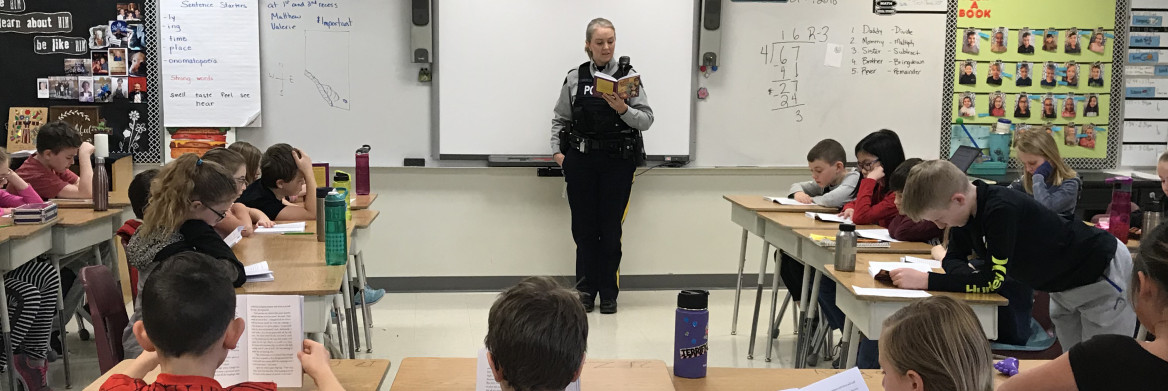Once per week, Cst. Rita Gillis sits down with a Grade 4 class in Okotoks, Alta,. and reads them a story.
"For a lot of kids, having a police officer in the classroom is new,
" says Gillis, a school liaison officer at the Okotoks RCMP detachment. "They're not used to having police officers teaching material to them.
"
As part of the WITS Program, officers like Gillis use books to teach elementary kids about how to cope with bullying. Through literature and discussion, they teach children about four key conflict resolution strategies that the program is based on — walk away, ignore, talk it out and seek help (WITS).
Last year, Gillis helped bring the WITS Program into St. Mary's Elementary School. It was so successful that the program has now expanded to five Grade 4 classes.
"It's totally opened up a new line of communication,
" says Gillis. "Having that early relationship with kids is key. It makes it easier to engage with them later on in junior high and high school.
"
Using your WITS
WITS is supported by the RCMP Foundation — a charitable organization that initiates, develops and supports child and youth programs across Canada. RCMP detachments often use programs supported by the foundation as a way of engaging youth to prevent them from going down the path of criminality later in life.
The WITS Program helps build police-youth relationships by having officers interact with kids during class time. Schools choose books that reflect anti-bullying messages, and police officers come in to read them out loud during monthly visits. Afterwards, officers engage the kids in activities to discuss what they've learned.
On her most recent trip to a classroom, Gillis read a book that talked about how it's important to see differences between people as something worth celebrating. Afterwards, she paired kids up and got them to brainstorm things they had in common, and things that made them unique.
"The level of excitement and participation is amazing,
" she says. "I saw conversations that normally wouldn't happen — kids saying things like 'I didn't know you liked sushi!' and discovering new things about their classmates. It brings a sense of unity and togetherness in the classroom.
"
Gillis says she likes how the WITS Program encourages police to have conversations with youth.
"Kids often envision police officers as having a hard exterior, so to let them know that we're just people is so beneficial,
" she says. "It's broken down barriers.
"
Kids, Cops and Computers
The RCMP Foundation also supports the Kids, Cops and Computers program for youth in middle schools. Much like the WITS Program, Kids Cops and Computers is all about setting youth up for success by teaching them about healthy lifestyle choices.
RCMP Cst. Rebecca Dingle runs the program in a Grade 7 class at Brooks Junior High School in Brooks, Alta. For the past three years, she's used the program as a way to engage youth in the community.
"If you give kids the tools to succeed early in life, it can prevent criminal activity later on,
" says Dingle. "Kids are on computers, cellphones and social media all the time. Our goal is to educate them on safe, smart, healthy habits.
"
As part of the program, each youth receives a laptop computer to use throughout the school year on academic assignments.
"Kids are digital natives and when they're engaged with technology in the classroom it can improve their level of work," says Jim Burchell, principal of Brooks Junior High School. "
It gives kids who don't have technology in their home an opportunity to have a level playing field with some of their peers."
Dingle visits the Grade 7 class about once per month. Each visit, she talks about topics like cyberbullying, sexting and self-esteem. She also provides information on how to report online harassment, how to protect social media profiles and what's appropriate to post online.
If kids successfully complete the program, they officially earn ownership of the laptops at the end of the year.
"Giving kids access to technology helps them succeed and excel in the things they want to do,
" says Dingle. "We hope that through this opportunity, kids can be leaders in their schools, their communities and online.
"
